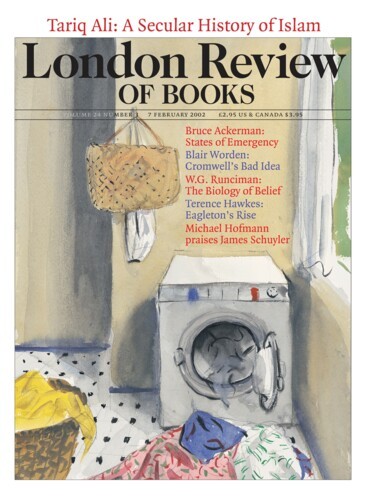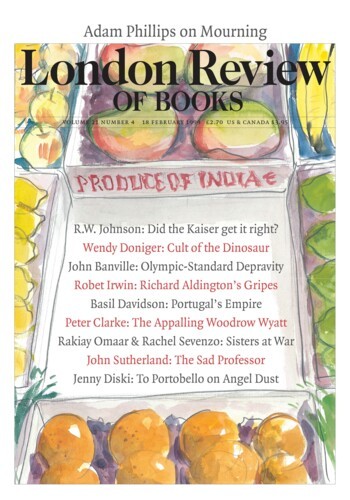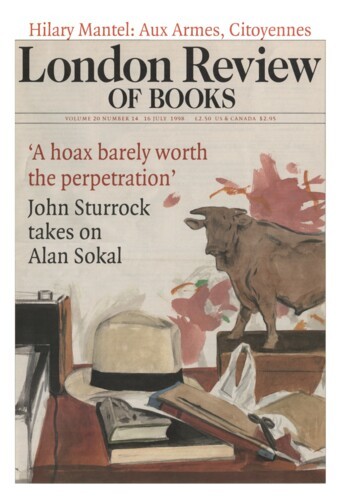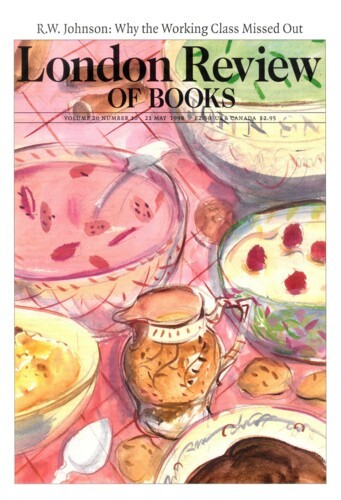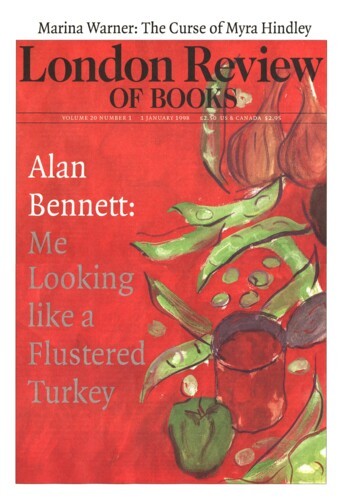Putting on Some English: Eagleton’s Rise
Terence Hawkes, 7 February 2002
In the United States, ‘English’ can mean ‘spin’: a deliberate turn put on a ball by striking it so that it swerves. It’s a subtle epithet, perhaps recording a canny colonial take on the larger distortions inseparable from imperial rule. But the truth is that as the English invented ‘Great Britain’ and then began the process of large-scale...
